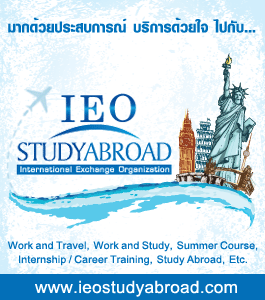London School of Economics and Political Science
History
- Founded by Fabians, Beatrice and Sidney Webb, Graham Wallas and George Bernard Shaw in 1895 to specialise in the advanced study of the social sciences.
- Subjects pioneered at LSE include anthropology, criminology, international relations, social psychology and sociology.
- LSE has produced 34 world leaders and heads of state, and 16 Nobel Prize winners in economics, peace and literature.
Location and transport
- Located in the heart of central London, LSE's departments and institutes are concentrated on one campus.
- Communication and travel links are excellent, with access to multiple bus routes and tube stations.
Entry standards
- Entry standards are high and LSE encourages applications from all students with the best academic potential, irrespective of background.
- Excellent grades at A level (including A* for some subjects) are required in traditional academic subjects plus good GCSE grades.
- There are many widening participation activities including: LSE Choice, Pathways to Law, summer schools and student tutoring, mentoring and shadowing.
Student mix
- There are 4,200 full-time undergraduates and 5,000 full-time postgraduate students, representing around 150 countries and thereby making LSE one of the most international universities in the world.
- There are roughly equal numbers of male and female students.
- Around 17,000 applications for 1,200 undergraduate places were received in 2011.
Course flexibility
- There are 38 programmes that often allow the combination of different social science subjects.
- They cover subjects including economics, politics and government, history, management, law, accounting, finance, international relations, philosophy, geography, social policy and sociology.
- New areas of study are frequently introduced to keep pace with changes in the social sciences.
- A new undergraduate exchange programme with Sciences Po allows around 10 LSE students per year to study for a year at one of the Sciences Po campuses in France.
Teaching standards
- Departments have achieved outstanding results in external assessments.
- A variety of rigorous internal systems help to maintain teaching quality.
- Student views are important as a measure and are sought by the School each year and are acted upon.
Research standards
- The highest percentage of world leading research of any university in the UK and topped or came close to the top of a number of other rankings of research excellence. LSE came top in the rankings for Economics, Law, Social Policy and European Studies.
- Over 90% of eligible staff were returned to the Research Assessment Exercise.
- The School currently has sixteen formal research centres focusing on a broad range of social science activities, including well-known groups such as the Centre for Economic Performance and the Financial Markets Group established in 1987 by Mervyn King, the current Governor of the Bank of England. In addition, the School hosts the Grantham Research Institute on Climate Change and the Environment, chaired by Professor Lord Nick Stern, author of the influential 2006 Stern Review. In the last three years, the School has established the International Growth Centre, a £100-m programme funded by the Department for International Development to promote economic growth in developing countries.
- From its foundation, the School has sought to disseminate its research to fellow academics, the media, opinion formers and the general public. Its website, which includes an Experts Directory, invites audiences to join the global debate at LSE. Research Online - the institutional repository - provides access to a diverse range of research produced by the School. Everyone is welcome to attend the LSE's public events, where some of the most influential figures in the social sciences and humanities can be heard for free.
- Academics are in continual demand as commentators, analysts and advisers to governments, policy makers and charities, both in the UK and internationally.
Academic strengths
- LSE is a specialist university with an international intake and a global reach. Its research and teaching span the full breadth of the social sciences, from economics, politics and law to sociology, anthropology, accounting and finance. The School has one of the largest concentrations of applied economic, financial and social researchers in the world.
- Close partnerships with other universities include Columbia University in New York, Sciences Po in Paris, Peking University in Beijing, National University of Singapore and the University of Cape Town.
- LSE attracts some of the most influential figures in the world to give public lectures, including Kofi Annan, Bill Clinton, Nelson Mandela, Mary Robinson and George Soros, with free access for all students.
- LSE attracts some of the most influential figures in the world to give public lectures, including Kofi Annan, Bill Clinton, Nelson Mandela, Mary Robinson and George Soros, with free access for students.
Student facilities, including library and computing
- The Library is the major international library of the social sciences providing access tounique electronic and print collections.
- The Library building holds over 4 million printed items, and we have electronic access to around 80,000 ejournals and ebooks.
- In 2012 our Digital Library was launched, containing outputs from our digitisation programme, unique born-digital archives, institutional records and personal artefacts.
- The Library has earned 'Designation' status for its pre-eminent collections of national and international importance by the Museums, Libraries and Archives Council (MLA).
- The Library has achieved user satisfaction ratings in excess of 90% for the past five years.
- Zoned study areas allow silent study as well as group work in the Library.
- The 'i-roam' scheme allows students and staff to borrow laptops for use in the Library.
Disability services
- The LSE is committed to promoting equality and diversity in order to deliver the best possible service to its students, staff and the wider community. Find out more about the disability services at LSE on the website.
Students' union
- There are over 190 student societies covering most countries in the world and specialist interest.
- Students can also get involved in the School's Media Group, student magazine and radio station.
- Union general meetings are held weekly, where every student can attend and vote.
Sport
- Facilities include a fitness centre, badminton and squash courts and a gymnasium.
- There are football, rugby and cricket pitches, with tennis during the summer at the sports ground.
- Students can also access the University of London's sports facilities.
Recent/prospective new builds
- The School purchased the Land Registry building overlooking Lincoln's Inn Fields and took vacant possession in May 2011. It will be used for academic, research and teaching purposes.
- A new student centre unifying many student services within a single location is due for completion in 2013.
Availability of part-time work
- The 'My Careers Service' function of the LSE Careers Service advertises part-time jobs at LSE and with outside employers.
- Opportunities are frequently advertised at the LSE for internships and voluntary work experience.
- The LSE Careers Service provides a varied and comprehensive careers guidance and employment service for students.
Notable alumni
- Loyd Grossman (media).
- Cherie Booth (law).
- Shami Chakrabarti (civil liberties).
- Mark Hoban (politics).
- Ed Miliband (politics).
- Jo Swinson (politics).
- Jeremy Heywood (civil service).
- Christiana Figueres (UN).
- Hilary Mantel (writer).
- Justin Webb (media).
- Daniel Finkelstein (media).
- Ross Altmann (campaigning).
UCAS Code L72
London School of Economics and Political Science Tuition Fees 2012
The tuition fees for full-time UK and other EU students beginning their undergraduate studies at English universities in 2012 have been announced. The average fee across all universities will be £8,393 as compared to that for 2011 entry of £3,375. To offset this increase in fee levels, there will be additional financial support for students from lower income families and other groups not well represented in higher education. This will be in the form of fee waivers, grants, bursaries and scholarships, and accommodation discounts. It is a comprehensive package of income and expenditure but most of the media coverage has concentrated on the cost and not enough on the benefits and help.
Students resident in Wales will receive a non-repayable Fee Grant equal to the fee amount above £3,465, no matter where in the UK they study.
| Minimum fee |
£8500 |
Average fee |
£8500 |
| Maximum fee |
£8500 |
Average cost to student* |
£7529 |
* The estimated average cost per student after allowing for financial support (eg. fee waivers and bursaries) from the institution.
London School of Economics and Political Science Tuition Fees to 2011
The table below lists the annual tuition fees that were charged to new students entering the first year of an undergraduate degree or a one-year taught postgraduate course, most recently for those entering in September/October 2011. Note that these are tuition fees only for the full academic year and do not include accommodation, living costs or travel costs, etc.
Fees for UK nationals with UK residence (home students) and EU nationals with EU residence (EU students) are the same, whereas fees for other overseas students are typically differentiated by course, usually in two bands: one for arts/classroom based courses and the other, typically higher, for science/laboratory based courses (fees for medicine and dentistry are generally much higher).
Postgraduate course fees do not necessarily fit neatly in fee bands and further enquiry should be made to a university (or its website) for the exact fees for a particular course.
| Year |
UK and EU Students |
Overseas - Art |
Overseas - Science |
| Undergrad |
Postgrad |
Undergrad |
Postgrad |
Undergrad |
Postgrad |
| 2006–2007 |
£3000 |
£8454-16044 |
£11418 |
£12438 |
£11418 |
£16044 |
| 2007–2008 |
£3070 |
£8790* |
£11880 |
£12936 |
£11880 |
£16686 |
| * PGHEU - basic £8790, most at £12936, some at £16686; PGOS - £12936 - £16686 |
| 2008–2009 |
£3145 |
£9144* |
£12160 |
£13452* |
£12160 |
£21600 |
| * PGHEU from £9144 to £17352, PGOS from £13452 to £21600 |
| 2009–2010 |
£3225 |
£6192* |
£12840 |
£13992 |
£12840 |
£22464 |
| * PGHEU £6192 - 22464; PGOS £13992 - 22464 |
| 2010–2011 |
£3290 |
£6432-23928 |
£13680 |
£14904 |
£13680 |
£23928 |
| 2011–2012 |
£3,375 |
£6,672–25,499 |
£14,592 |
£15,888 |
£14,592 |
£25,488 |
| * Taught master’s fee depends on programme. Table of fees at http://www2.lse.ac.uk/intranet/students/tableOfFees/2011-12.aspx |
We wish to acknowledge and warmly thank the late Mike Reddin for permission to publish extracts from his tables of university and college fees.
Bursaries and scholarships
- In receipt of full Maintenance Grant: bursary of £3,500 or £3,000.
In receipt of partial Maintenance Grant: bursary between £2,500 and £500.
- The LSE Bursary is awarded to UK students from low income backgrounds. The maximum value is £3,500 per year. Students in receipt of a partial Maintenance Grant receive between £2,500 and £500 per year.
- 'My Careers Service' function of the LSE Careers Service provides part-time employment opportunities for students.
- Fifty per cent of additional fee income to be earmarked for bursaries, widening access and retention work.
|









